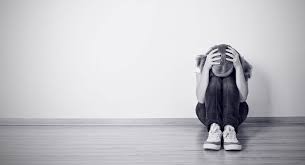Anxiety is becoming a more common problem in the hectic pace of modern life. Many people struggle with varied degrees of anxiety due to a variety of factors, including personal issues and uncertainties, social pressures at work, and expectations from others. Long-term anxiety can cause severe emotional and physical pain, even though anxiety is a normal reaction to stress. Thankfully, there are practical strategies for handling anxiety, and developing relaxing rituals is one of them.
Knowing About Anxiety
Anxiety is a complex emotional reaction that manifests as feelings of fear, worry, and trepidation. It can take many distinct forms, including panic disorder, social anxiety disorder, generalized anxiety disorder (GAD), and particular phobias. Restlessness, impatience, trouble concentrating, tense muscles, and irregular sleep patterns are typical symptoms. Anxiety can affect everyday functioning and general well-being if left untreated.
The Function of Customs
In the context of managing anxiety, rituals are defined as regimented, recurring actions that offer comfort, predictability, and order. Personalized requirements and tastes can determine how complicated or simple these rituals are, ranging from everyday routines to complex activities. The fundamental quality of rituals is their capacity to induce calmness by providing a feeling of mastery over one’s surroundings and feelings.
Establishing Peaceful Rituals
1. Morning Introspection and Meditation
Positive vibes can be created by beginning the day with introspective journaling or mindfulness meditation. Through this routine, people can learn to ground themselves, recognize any unsettling thoughts, and develop an awareness of the present moment.
2. Exercise
Regular exercise, like jogging, yoga, or dance, not only improves physical health but also generates feel-good endorphins that reduce anxiety. Including exercise in one’s daily routine can be an effective stress-reduction strategy.
3. Conscious Breathing
Deep breathing techniques can help reduce anxiety and increase calm throughout the day. When faced with stress or anxiety, routines like diaphragmatic breathing or box breathing might be incorporated.
4. Establishing a Safe Haven
Establishing a sanctuary—a peaceful area at home or at work—can serve as a haven from daily stresses. Its efficacy as a relaxation ritual can be increased by personalizing it with calming accents like plants, candles, or relaxing music.
5. Electronic Detox
Establishing limits on digital use, especially before bed, can improve mental health. Setting up a routine for a digital detox entails turning off devices and participating in activities that encourage unwinding and sound sleep.
The Advantages for Psychology
Developing relaxing routines has various psychological advantages for people who are anxious:
Sense of Control: Rituals offer an organized framework that helps people feel in control of situations that make them anxious.
Emotional Control: By encouraging relaxation and lessening the severity of anxious feelings, soothing practices help control emotions.
Enhanced Resilience: Regular ritual practice strengthens coping strategies and increases resistance to stress, which lessens the negative effects of anxiety on day-to-day activities.
Including Rituals in Everyday Life
Consistency and intentionality are necessary for successfully incorporating relaxing rituals into daily life. Here are some pointers for successfully implementing rituals:
Start Small: Choose one or two rituals that you find meaningful to start with, and as you find what works best, gradually add more to your repertoire.
Be Adaptable: Make sure your routines may be modified to suit alterations in your schedule or personal preferences.
Make Self-Care a Priority: Acknowledge the significance of rituals in preserving mental and emotional health and regard them as necessary parts of self-care as opposed to optional activities.
In summary
In conclusion, soothing rituals can be a very helpful way to treat anxiety, which is a prevalent but treatable disorder. Regular routines help people develop a sense of serenity, lessen the symptoms of anxiety, and improve their general quality of life. The secret is to identify rituals that individually resonate with you and to constantly practice them, whether through mindful breathing, physical activity, meditation, or the creation of personal sanctuaries. People can empower themselves to deal with anxiety in a more resilient and emotionally balanced way by doing this.
